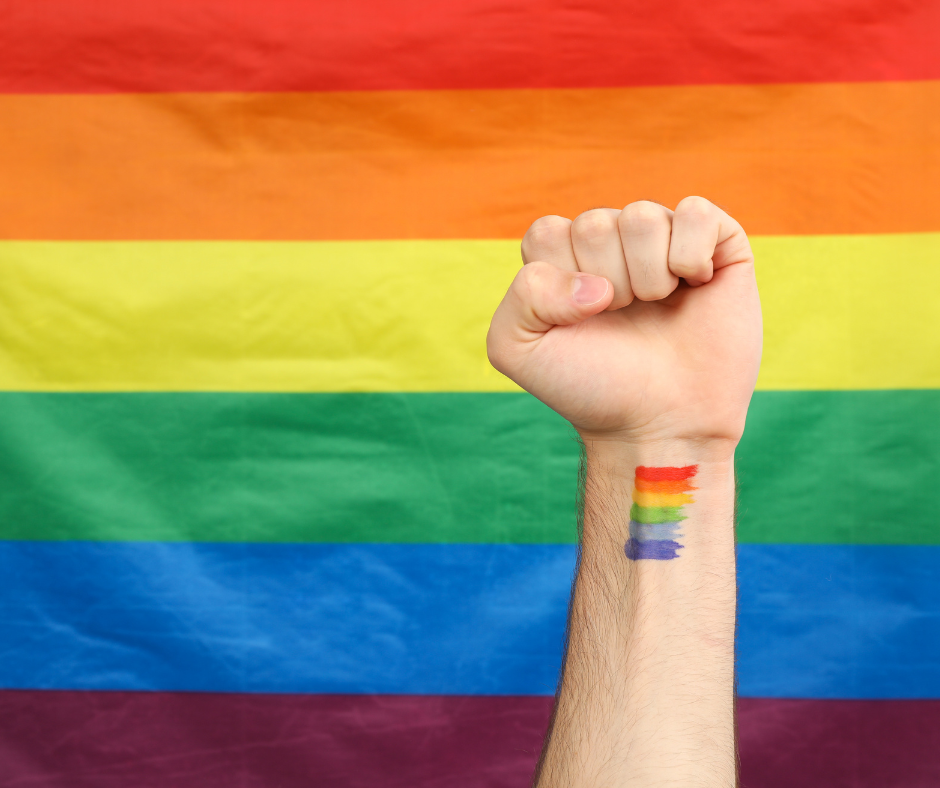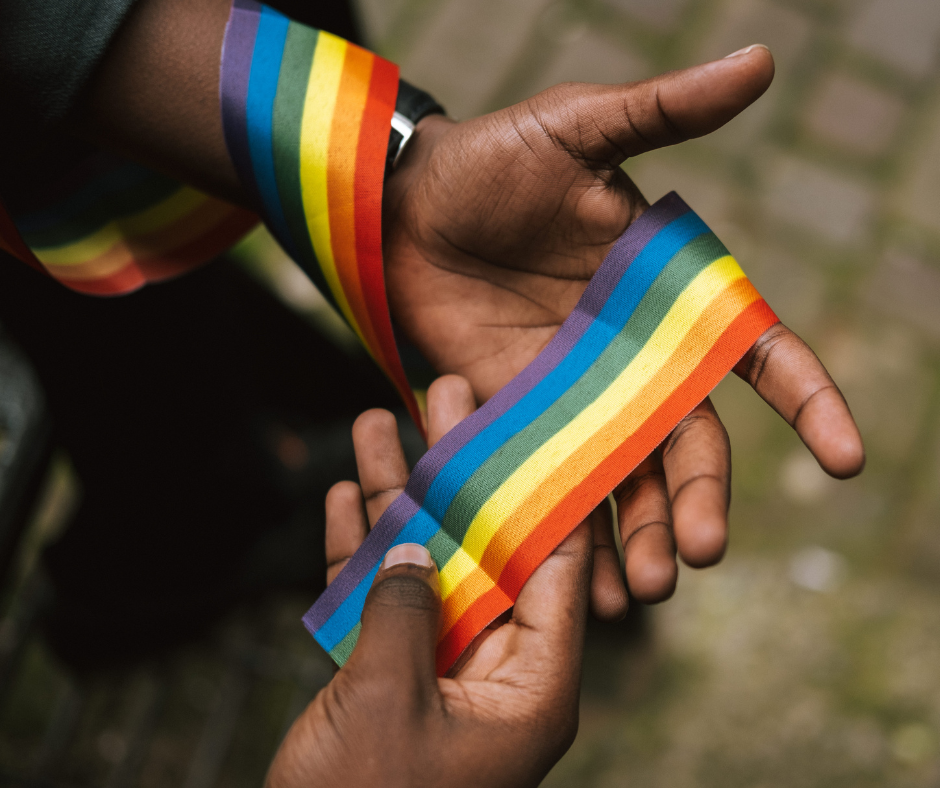How LGBTQ+ Educators Can Find Support and Experience Greater Allyship from Colleagues

In 2023, state legislatures introduced roughly 500 anti-LGBTQ+ bills, with school and education a big target. Additionally, of the 100 anti-LGBTQ+ laws passed in the last five years, half were passed in 2023 alone.
As a response to these bills and anti-LGBTQ+ rhetoric in general, individuals and organizations have stepped up to offer support.
In July, the National Education Association—America’s largest teachers’ union—passed a measure to address discrimination and violence toward the LGBTQ+ community. The measure, which costs $580,000, includes supporting professional development and training, promoting and facilitating programs that address LGBTQ+- youth homelessness and more.
Likewise, the American Federation of Teachers—the first union to support protections for LGBTQ+ workers—formed a task force to help recruit and retain LGBTQ+ educators and expand Gay-Straight Alliance clubs, for example.
In New Jersey, a grant from the National Education Association has helped boost representation and cultural sensitivity in schools. Called “Cultivating Community, Action, Justice, and Understanding through the NJEA Consortium: Connections. Community. Curriculum,” which assembles key stakeholders to infuse historically marginalized identities into K-12 teaching and learning through curriculum and professional learning.
“We have to support our fellow educators who are part of the community but not expect them to be the person leading the initiative,” said Beatriz Pelaez-Martinez, who identifies as an ally and worked with Garden State Equality to create a pilot curriculum for Spanish and Italian educators, found here.
Support is also shown at school, as more students are standing up for the LGBTQ+ educators in their lives. In Seattle, students staged a large walkout to protest their school’s decision to force out two LGBTQ+ teachers.
In spite of hurtful legislation, the LGBTQ+ community and its allies are banding together to uplift voices and fight discrimination. To further support the community, Rutgers Alternate Route has rounded up helpful resources and educational materials to create a more accepting environment in schools.
“We have to remember it speaks volumes to students and their parents,” Pelaez-Martinez said. “And if your colleagues know you are making that effort, it helps them.”

Support for LGBTQ+ educators
Knowing where to turn for support and who to talk to is a huge step in alleviating some of the stress LGBTQ+ educators experience in the workplace.
“We’re not operating at peak performance when we're feeling hyper-stressed and hyper-exhausted,” said Tyler Picone, who uses they/them pronouns and is currently studying to receive their master’s in social work at Rutgers University.
Luckily, there are many resources available for the LGBTQ+ community that address discrimination, provide support and connect individuals with one another.
LGBTQ+ Legal Resources
In New Jersey, workplace discrimination based on sexual orientation or gender identity, is illegal, which means LGBTQ+ educators have strong protections if they feel targeted in the workplace.
The legal landscape, however, is often evolving for the LGBTQ+ community and challenging to follow, which is why knowing where to turn is a powerful tool.
The following resources offer information on legal protections, including self-education, connections to legal help and advocacy opportunities.
Gay-Straight Alliance Network: Legal Resources
GLBTQ Legal Advocates & Defenders (GLAD)
Immigration Inequality
Lambda Legal
Minority Corporate Counsel Association
National Center for Lesbian Rights
National Center for Transgender Equality’s Trans Legal Services Directory
National LGBT Bar Association
Trans Law Help
Transgender Legal Defense & Education Fund

LGBTQ+ Advocacy Groups
The below organizations work on behalf of the LGBTQ+ community to provide education, offer resources unique to the community, target and challenge discriminatory policies and much more.
American Civil Liberties Union (ACLU)
APLA Health
GLAAD
Human Rights Campaign (HRC)
International Lesbian, Gay, Bisexual, Trans and Intersex Association
OutServe-SLDN
National Black Justice Coalition (NBJC)
National Lesbian and Gay Task Force (NLGTF)
Teach for American Brave Education Summits
National support groups and resources
These groups are a safe haven for the LGBTQ+ community, with some that cater specifically to educators. Connect with individuals across the country to exchange resources, share challenges and celebrate wins.
INTO LGBT+ Teachers’ Group
LGBT Life Center
LGBT+ Educators Network
Queer Kid Stuff
Local support groups and resources
New Jersey has many support groups and resources for its LGBTQ+ community. Connect directly with a PFLAG or Pride center or use the Centerlink and Psychology Today databases to search for resources close to home.
Centerlink
PFLAG Jersey Shore
PFLAG North Jersey
Pride Center of NJ
Psychology Today listings
How to support LGBTQ+ educators

One of the best ways school administrators and teachers can show support toward their LGBTQ+ peers is by incorporating representation and showing allyship in their own day-to-day lives. Being an ally also takes the pressure off members of the LGBTQ+ community.
“I get frustrated that we just assume everyone part of the community automatically wants to be the spokesperson for that community,” Pelaez-Martinez said.
Allyship is powerful and there are a few simple things educators can do to be strong allies.
Wear or hang Pride flags
The Pride flag has evolved from community representation to community safety. Businesses hang Pride flags to signal they are safe spaces and educators can do the same in their classrooms. Alternatively, wear a pride pin on a lanyard or shirt to nonverbally communicate your support.
Teach an LGBTQ+-inclusive curriculum
The LGBTQ+ community has made contributions in all areas, which should be represented in all subjects, year ‘round.
Currently, New Jersey is one of seven states that have introduced legislation to advance inclusive curricular standards, taking a big step toward promoting inclusive curricula.
LGBTQ+-inclusive curriculum resources:
American Federation of Teachers
American Psychological Organization
Anti-Bullying Ambassadors
GLSEN Inclusive Curriculum Guide
Make it Better for Youth
National Education Association
Safe Schools Project
Call or write legislators and ask them to support the Equality Act
Constituents have the power to put pressure on political leaders. Messaging legislators about important issues can be effective, especially when people band together toward a common cause. The Equality Act creates a safer country for LGBTQ+ individuals and sincere, consistent communication with legislators can help move the needle.
Incorporate stories reflecting positive LGBTQ+ identities
Representation is a powerful tool. It helps people feel seen and creates deeper connections between one another.
“I think a lot of the discomfort around crossing that gap between being an acquaintance and being an ally is connecting before you get into the details of someone’s vulnerabilities and identities,” Picone said.
There are plenty of great stories with LGBTQ+ characters to incorporate into a classroom library, as well as rich moments in history to share during class.
Speak to local teachers’ unions about what measures they’re taking
Teachers’ unions help create positive change for educators. Many large teachers’ unions have already pledged their support for the LGBTQ+ community and have pushed for change. On the local level, educators can connect with their unions to see what actions they are taking to protect LGBTQ+ employees.
Educate yourself and others

Allyship and education help inform how to speak up in a way that is effective and brings change.
“If you let people speak enough, you will understand what allyship looks like to them,” Picone said. “We learn how to treat people based on who they are.”
The following have great historical significance in the LGBTQ+ community and are a great place to start learning:
Established in 1924, The Society for Human Rights is recognized as the first LGBTQ+ organization in the United States.
On June 28, 1969, the New York City police raided the Stonewall Inn, a safe space for the LGBTQ+ community to congregate. The raid set off a days-long uprising, marking a turning point in LGBTQ+ history and establishing what we know as Pride Month.
Until 1987, the American Psychiatric Association recognized homosexuality as a mental disorder. The removal took more than a decade, as association members voted for it in 1973.
The Matthew Shepard & James Byrd Jr. Hate Crimes Prevention Act becomes law
In 2009, President Barack Obama signed the Matthew Shepard & James Byrd Jr. Hate Crimes Prevention Act into law. Named for two victims of high-profile hate crimes, the law expanded hate-crime protections for Americans.
SCOTUS recognizes same-sex marriage
On June 26, 2015, the United States Supreme Court ruled same-sex couples have the fundamental right to get married.
The Equality Act is introduced
More than 80 percent of Americans support LGBTQ+ nondiscrimination protections, and the Equality Act ensures the LGBTQ+ community, people of color, women and people of faith are all protected. The Equality Act amends the Civil Rights Act of 1964 and its road toward becoming a law has been a long one. It has yet to find enough support to advance.
If you’re considering following your dream of teaching, Rutgers Alternate Route can offer you the support and training you need to succeed. Be sure to follow Rutgers Alternate Route on Twitter or sign up for Alternate Route’s monthly newsletter for more information and stories from the field of education.

 Heather Ngoma has over 25 years of experience collaborating with educators across New Jersey to drive education innovation. She currently serves as the Director of the Rutgers-GSE Alternate Route Program in the Department of Learning and Teaching, a program which helps career changers, recent college graduates, and other aspiring education professionals become licensed teachers in New Jersey. Follow her on Twitter @heatherngoma.
Heather Ngoma has over 25 years of experience collaborating with educators across New Jersey to drive education innovation. She currently serves as the Director of the Rutgers-GSE Alternate Route Program in the Department of Learning and Teaching, a program which helps career changers, recent college graduates, and other aspiring education professionals become licensed teachers in New Jersey. Follow her on Twitter @heatherngoma.





